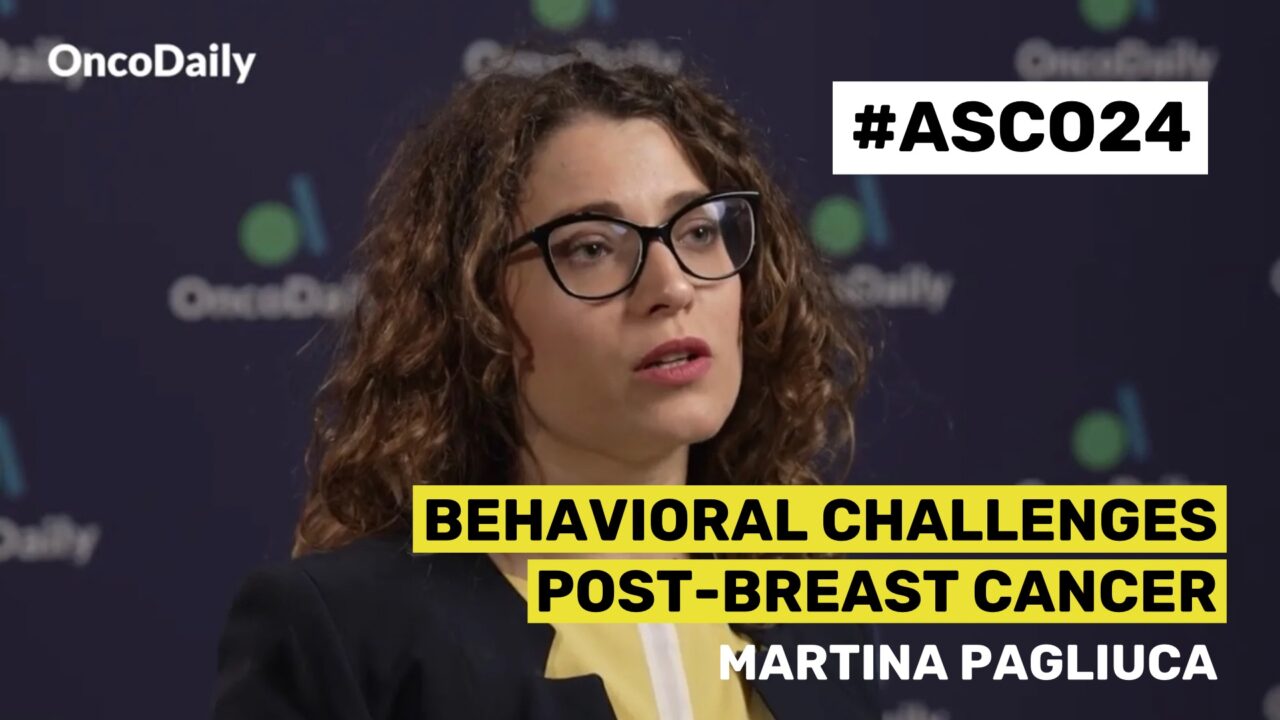The American Society of Clinical Oncology (ASCO) Annual Meeting is one of the largest and most prestigious conferences in the field of oncology. This year, the meeting took place from May 31 to June 4 in Chicago, Illinois. The event gathers oncologists, researchers, and healthcare professionals from around the world to discuss the latest advancements in cancer research, treatment, and patient care. Keynote sessions, research presentations, and panel discussions are typically part of the agenda, providing attendees with valuable insights into emerging trends and innovations in oncology.
This year, OncoDaily was at ASCO 2024 for the first time covering the meeting on-site. We had the pleasure of interviewing researchers who summarized the highlights of their work.
In this video, Martina Pagliuca, Medical oncologist and researcher in Gustave-Roussy, shared insights on ‘Trajectories of cancer-related behavioral symptoms (CRBS) burden after breast cancer (BC).‘
Hi, my name is Martina Pagliuca. I am a medical oncologist and researcher in Gustave-Roussy, France. And this year at ASCO 2024 annual meeting, we are presenting our analysis focused on behavioral symptoms after breast cancer.
We especially focus on symptoms such as insomnia, anxiety, depression, cognitive impairment and fatigue. And our analysis is carried out in the Canto Court. The Canto study is a multi-center longitudinal court study, which enrolled more than 11,000 patients from 2012 to 2018, collecting data longitudinally during this time period.
And we focused on the trajectory, so evolving pattern of behavioral symptoms after early stage breast cancer. And we identified six different evolving pattern of behavioral symptoms burden, starting from a group of patients with very low burden of symptoms and two different groups with high and very high burden of behavioral symptoms. But then interestingly, we also found that approximately 13% of our court of patient had an important and sharp deterioration of behavioral symptom burden after the first year following diagnosis.
So the period that we know includes surgery and chemotherapy and radiotherapy. Then we also identified approximately 6% of patients that has long-term deterioration of symptoms, starting from year four after diagnosis of breast cancer and a group with the improvement of symptoms. Interestingly, in this group of patients, the most prevalent symptoms at the diagnosis was anxiety.
And then we performed a logistical regression to find out factors associated with this group of patients. And in the early onset group, so the patient that has this deterioration of behavioral symptoms burden after diagnosis of breast cancer, we saw that actually patients that are more likely to be member of this group are younger patients, less wealthy, with an higher BMI, and that received endocrine and chemotherapy, and with previously reported psychiatric disorder. So our analysis was carried out actually to try to have some characteristics of the population that could help us to inform our clinical practice.
And since the moment of diagnosis of breast cancer, try to also offer a personalized medicine in the context of supportive care and not only the treatment for breast cancer.
More videos and content from ASCO 2024 on OncoDaily.


